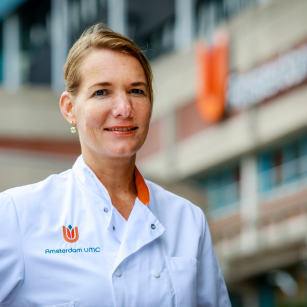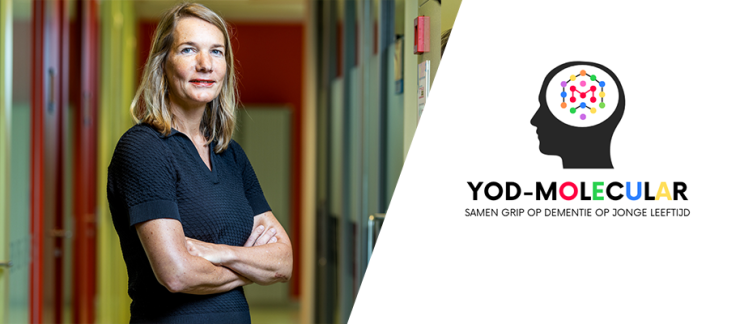Young-onset dementia is caused by a brain disease that produces symptoms before age 65. It is usually caused by Alzheimer's disease or fronto-temporal dementia (FTD). At a young age, in addition to memory loss, dementia can manifest as behavioral changes, difficulty coming up with words, reduction in empathy and problems with perception. Because of these other characteristics and the young age, dementia is not always immediately thought of when these symptoms occur, and the diagnosis often comes (too) late.
Recognizing young-onset dementia quicker and better
The mission within YOD-MOLECULAR is to recognize young-onset dementia, especially within FTD, more quickly. “This will allow us to start treatment sooner, slow down possible disease progression and allow the treatment or therapy to better benefit the patient,” the scientific director of Alzheimer Center Amsterdam adds. Moreover, there is currently still too little attention paid to early-onset dementia.

Imaging techniques, brain donations and artificial intelligence
Within the YOD-MOLECULAR consortium, 20 researchers will collaborate on 4 projects. The first project focuses on creating a diagnostic toolkit to better and more quickly recognize young-onset dementia. Secondly, the disease progression- how it develops from diagnosis to the final stage - will be investigated using imaging techniques. The third project examines the molecular and cellular levels of the human brain to find the underlying mechanisms of early-onset dementia to better understand how the disease works, allowed by brain donations. Finally, a diagnostic model is being set up with all this information using artificial intelligence, which can contribute to the first project and thereby better predict whether a person is at risk.
Bridging the gap: from lab to patient
“Because YOD-MOLECULAR focuses both on clinical and fundamental research, it builds a strong bridge between these two disciplines,” Pijnenburg states. There is much overlap between the different projects. “And all data and results eventually are brought together in the fourth project, where there is a strong focus on integration and impact,” she concludes. Mapping how onset dementia manifests itself during the disease process and understanding the underlying molecular mechanisms may also open up new possibilities for developing therapies or treatments.
Organization and collaboration of the YOD-MOLECULAR consortium
The YOD-MOLECULAR consortium is part of the NWO research program KIC 2020-2023 MISSION - Living with Dementia. This consortium is led by Alzheimer Center Amsterdam (Amsterdam UMC) by Prof. Dr. Yolande Pijnenburg, in collaboration with 20 researchers from both national and international institutes. Besides the Amsterdam UMC, the Vrije Universiteit (VU Amsterdam), Hogeschool Utrecht, Rijksuniversiteit Groningen, Erasmus MC, and organizations such as Team Alzheimer, Alzheimer Nederland, FTD Lotgenoten and Kenniscentrum Dementie op Jonge Leeftijd are involved. The Brain Foundation, Winterlight Labs (USA) and Immuneering (ALLEO Labs, USA) are also part of YOD-MOLECULAR.
Moreover, YOD-MOLECULAR is working in parallel with the YOD-INCLUDED <insert link naar YOD-INCLUDED artikel> consortium, where forces can be combined for patient recruitment and to develop the YOD toolkit. Therefore, these two consortia will work closely together.

